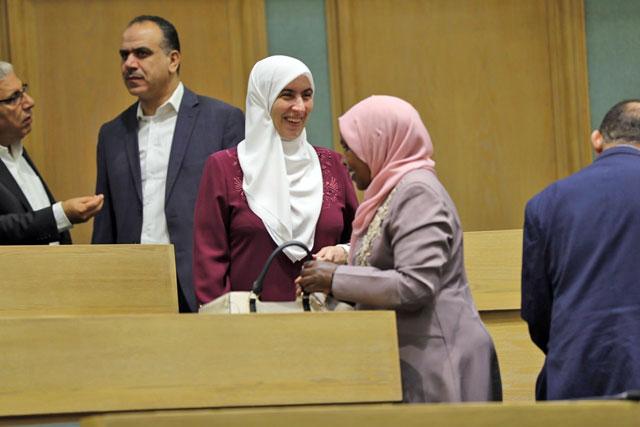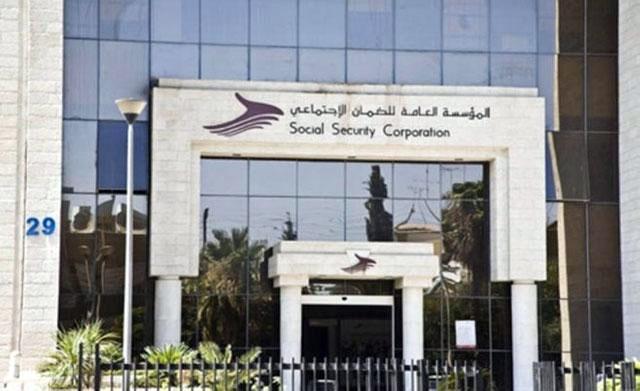You are here
MPs’ amendments to social security law draw flak
By Bahaa Al Deen Al Nawas - Aug 25,2019 - Last updated at Sep 02,2019

Members of the Lower House are seen during a session on Sunday (Petra photo)
AMMAN — Several experts on Sunday criticised the 2019 amendments to the Social Security Corporation (SSC) Law, which the Lower House endorsed the same day.
In remarks to The Jordan Times, experts mainly criticised the provision allowing Jordanians subscribed to social security to withdraw from their savings to fund the higher or vocational education of their children.
Another point they criticised is the amendment to include members of parliament and senators in the old-age, disability and death insurance based on their request, under the condition that they pay the subscription fees, with the monthly fees based on the monthly allowance allocated to them.
Economist Wajdi Makhamreh argued that allowing parliamentarians to become subscribers will make the SSC shoulder more burdens, especially because "most of them are already covered with insurance for their retirement and some even have life insurance".
In regards to allowing subscribers to withdraw from their savings, Makhamreh explained that, for those who do so, this will decrease their pension, which will affect their stability in the long run.
Economist Mazen Marji agreed with Makhamreh's point, adding that not only will this weaken the pension, but it will also make citizens shoulder further responsibility instead of relying on their health insurance, especially since those with social security insurance are employees who should have health insurance.
As for allowing Jordanians to withdraw from their savings to fund the higher or vocational education of their children, he said that this relieves entities that grant scholarships or provide aid for higher education fees, putting more responsibility on individuals.
In response, SSC spokesperson Musa Sbeihi said that subscribers will be able to withdraw from their savings, which is not the same thing as the fees taken from their salaries for retirement.
"Once they retire, the money in their savings account is given back to them in one payment at once. It is not related to their retirement salary and does not make it less or weaken it at all," he noted.
Before the amendments, the savings account was to be dispensed immediately after the person who falls under the proper rules and regulations retires, Sbeihi said.
"Now it can be used to withdraw in case of unemployment for private sector employees, or while working to fund children's higher or vocational education, or for medical purposes, just like a bank account," he noted.
In regards to parliamentarians, economist Marji said: "They are not employees, they are public servants, and thus they should not receive extra benefits or receive retirement based on their service at the Lower House or the Senate."
MPs and senators should use the optional subscription and pay for it on their own while in office and even after, Marji said.
Sbeihi said that the Lower House or Senate will contribute two-thirds of the subscription fees while the members will contribute the last third as long as they are parliamentarians.
"If they are not re-elected when their term ends, they will have to either resume the subscription at their own expense optionally or continue it based on their actual workplace as employees."
On a related note, for military personnel who receive a complete and permanent ill-health pension, the current SSC Law does not allow them to work again anywhere unless their pension is cancelled.
However, under the new bill, Sbeihi confirmed that military retirees under the complete and permanent ill-health pension will be able to continue receiving payment from the SSC and a salary from any company or place they are able to be employed at.
Related Articles
AMMAN — Draft amendments to the Social Security Corporation (SSC) law would “in no way” affect the current conditions for receiving early pe
AMMAN — The Social Security Corporation (SCC) has proposed an amendment to the SSC Law that allows those covered by the unemployment insuran
AMMAN — The number of early retirees has reached 88,000, accounting for 46 per cent of all pensioners, the Social Security Corporation (SSC)















